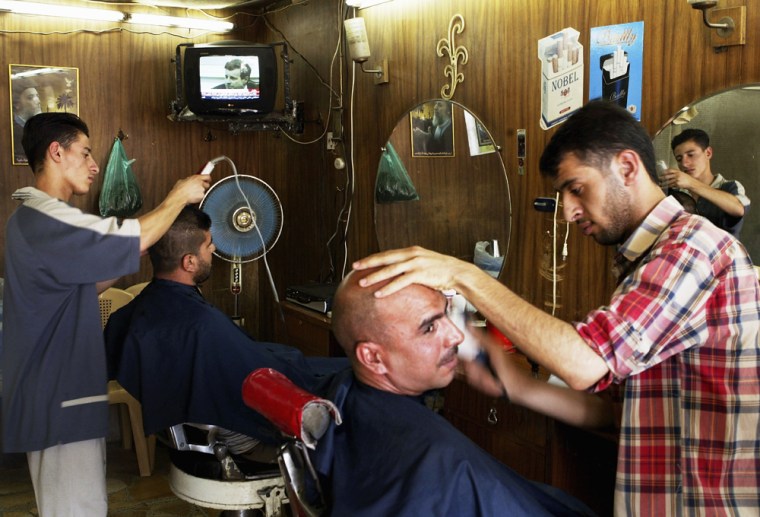After 14 months of bloodshed, foreign military occupation and political turmoil, Iraqis received the news Monday that they were back in control of their country with guarded optimism and fear of more terrorist attacks.
There were no exuberant scenes of jubilation which greeted the fall of Saddam Hussein’s statue on Firdous Square on April 9, 2003, when U.S. troops swept into the capital.
Nor were there volleys of celebratory gunfire which break out when Iraqi’s national football team beats foreign clubs.
On Monday, streets were almost empty.
But the subdued public reaction does not mean that many Iraqis are not happy with regaining nominal control of their country. Happiness, however, has been tempered by fears of insurgent attacks and uncertainty about the future.
And tens of thousands of foreign troops remain here, albeit no longer officially an occupation force.
“Iraqis are happy inside, but their happiness is marred by fear and melancholy,” said artist Qassim al-Sabti. “Of course I feel I’m still occupied. You can’t find anywhere in the world people who would accept occupation. America these days, is like death. Nobody can escape from it.”
Afraid to show happiness?
Still, many Iraqis greeted the return of sovereignty as a hopeful sign that things will eventually get better.
“Thanks be to God. We are happy. It’s a step in the right direction,” Ali Hussein Ali, a retired teacher said as he fingered blue prayer beads and played dominoes with his fellow retirees at a cafe in the Shiite neighborhood Tobchi.
“People are afraid to express their happiness,” Ali added. “When security prevails, Iraqis will be very happy. They will celebrate when the American troops leave and when they are no longer taking orders from the Americans.”
His friend Hamed Abbas chimed in: “We want June 28 to be our national day. We don’t want that date of April 9” when the city fell to the Americans.
At a public market in Tobchi, a 45-year-old mother of four, who gave her name only as Umm Sarmad or “mother of Sarmad,” described the unexpected return of sovereignty Monday as “such a nice surprise.”
“We’ve been through a lot of horrors,” she said as she bought watermelon. “God willing, this will be a new beginning and the end of our misery and suffering. I’m not worried about my sons anymore. Hopefully their lives will be better than ours.”
Shiites, the majority community in Iraq, have been generally more supportive of the Americans than the Sunnis, who fear a loss of power and privilege now that Saddam, a fellow Sunni, is gone.
No reason to celebrate?
In the Sunni stronghold of Azimiya, where Saddam took refuge before abandoning the city in April 2003, the mood was more subdued than among the Shiites.
“When we regain our security, safety and jobs, we will celebrate then,” Ahmed Karim, 31, as he stood opposite the Abu Hanifa Mosque, where Saddam was seen the day after his statue fell. “When I can go out for dinner with my friends after 9 p.m, we will celebrate.”
A Sunni mother strolling down the street with her two daughters said she found no reason to celebrate.
“There is no difference,” the woman, who gave her name as Umm Laila, or Mother of Laila. “As long as I see American soldiers in front of me, there is no reason to celebrate.”
On the wall of the mosque hung a banner proclaiming: “We will continue to fight with Fallujah until our last drop of blood drop.” The banner was signed in the name of a Sunni insurgent group which said it captured a U.S. Marine shown Sunday on a videotape broadcast by Al-Jazeera television.
